Ottava Rima (talk | contribs) The Persian Empire is not Iran. Iran is a territory. Persia is a nation that owned multiple territories. |
Try reading some history. |
||
| Line 63: | Line 63: | ||
* [[1735]]-[[1739]]: [[Russo-Turkish War (1735–1739)|Russo-Turkish War]]. |
* [[1735]]-[[1739]]: [[Russo-Turkish War (1735–1739)|Russo-Turkish War]]. |
||
* [[1735]]-[[1799]]: The [[Qianlong Emperor]] of China oversaw a huge expansion in territory. |
* [[1735]]-[[1799]]: The [[Qianlong Emperor]] of China oversaw a huge expansion in territory. |
||
* [[1736]]: [[Nader Shah]] assumed title of [[Shah]] of [[ |
* [[1736]]: [[Nader Shah]] assumed title of [[Shah]] of [[History of Iran|Persia]] and founded the [[Afsharid dynasty]]. Ruled until his death in [[1747]]. |
||
*[[1736]]: [[Qing Dynasty]] Chinese court painters recreate [[Zhang Zeduan]]'s classic [[panoramic painting]], ''[[Along the River During Qingming Festival]]''. |
*[[1736]]: [[Qing Dynasty]] Chinese court painters recreate [[Zhang Zeduan]]'s classic [[panoramic painting]], ''[[Along the River During Qingming Festival]]''. |
||
* [[1738]]-[[1756]]: [[List of famines|Famine]] across the [[Sahel]], half the population of [[Timbuktu]] died.<ref>{{cite web|url=http://ag.arizona.edu/~lmilich/desclim.html |title=Len Milich: Anthropogenic Desertification vs 'Natural' Climate Trends |publisher=Ag.arizona.edu |date=1997-08-10 |accessdate=2009-04-25}}</ref> |
* [[1738]]-[[1756]]: [[List of famines|Famine]] across the [[Sahel]], half the population of [[Timbuktu]] died.<ref>{{cite web|url=http://ag.arizona.edu/~lmilich/desclim.html |title=Len Milich: Anthropogenic Desertification vs 'Natural' Climate Trends |publisher=Ag.arizona.edu |date=1997-08-10 |accessdate=2009-04-25}}</ref> |
||
Revision as of 18:50, 21 August 2009
| Millennium |
|---|
| 2nd millennium |
| Centuries |
| Timelines |
| State leaders |
| Decades |
| Categories: |
|
Births – Deaths Establishments – Disestablishments |
The 18th century lasted from 1701 to 1800 in the Gregorian calendar, in accordance with the Anno Domini/Common Era numbering system.
However,Western historians sometimes specifically define the 18th century otherwise for the purposes of their work. For example, the "short" 18th century may be defined as 1715-1789, denoting the period of time between the death of Louis XIV of France and the start of the French Revolution with an emphasis on directly interconnected events.[1][2]
To historians who expand the century to include larger historical movements, the "long" 18th century [3] may run from the Glorious Revolution of 1688 to the battle of Waterloo in 1815[4] or even later.[5]

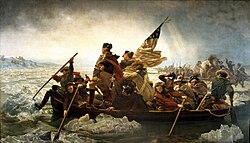
During the 18th century, the Enlightenment culminated in the French and American revolutions. Philosophy and science increased in prominence. Philosophers were dreaming about a better age without the Christian fundamentalism of earlier centuries. This dream turned into a nightmare during the terror of Maximlien de Robespierre in the early 1790s. At first, the monarchies of Europe embraced enlightenment ideals, but with the French revolution, they were on the side of the counterrevolution.
Great Britain became a major power worldwide with the defeat of France in the Americas in the 1760s and the conquest of large parts of India. However, Britain lost the USA after the American revolution. The industrial revolution started in Britain. Despite its modest beginnings in the 18th century, it would radically change human society and the geology of the surface of the earth.
Events
1700–1709

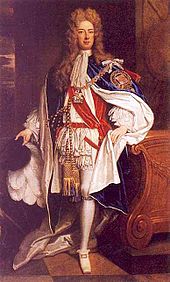
- 1700: The 1700 Cascadia earthquake (magnitude 9) occurs off the coast of the Pacific Northwest; the coast of Japan is struck by a tsunami.
- 1700: Bridge of the Gods forms across the Columbia River.
- 1700-21: Russia supplants Sweden as the dominant Baltic power after the Great Northern War.
- 1701-1714: War of the Spanish Succession was a conflict which involved most of Europe.[6]
- 1701-1702: The Daily Courant and the The Norwich Post becomes the first daily newspapers in England.
- 1702: Forty-seven Ronin attack Kira Yoshinaka and then commit seppuku in Japan.
- 1702-1715: Camisard Rebellion in France.
- 1703: Saint Petersburg founded by Peter the Great. Russian capital until 1918.
- 1703-1711: The Rákóczi Uprising against the Habsburg Monarchy.
- 1704: End of Japan's Genroku period.
- 1707: Act of Union passed merging the Scottish and the English Parliaments, thus establishing The Kingdom of Great Britain.[7]
- 1707: After Aurangzeb's death, the Mughal Empire enters a long decline and the Maratha Empire slowly replaces it.
- 1707: Mount Fuji erupts in Japan.
- 1707: War of 27 years between the Marathas and Mughals ends in India.
- 1708: The Company of Merchants of London Trading into the East Indies and English Company Trading to the East Indies merged to form the United Company of Merchants of England Trading to the East Indies.
- 1708-1709: Famine kills one-third of East Prussia's population.
- Great Frost of 1709: Coldest winter in 500 years.
- 1709: Hotaki dynasty founded in Afghanistan.
- 1709: Charles XII of Sweden flees to Ottoman Empire after Peter I of Russia defeats his army at the Battle of Poltava.
1720s
- 1720: The South Sea Bubble
- 1720: Spanish military embarks on the Villasur expedition from Mexico and travel into the Great Plains
- 1720–1721: The Great Plague of Marseille
- 1721: Robert Walpole became the first Prime Minister of Great Britain (de facto).
- 1721: Treaty of Nystad signed, ending the Great Northern War.
- 1721: Kangxi Emperor bans Christian Missionaries because of Pope Clement XI's decree.
- 1721: Peter I reforms the Russian Orthodox Church
- 1722: Afghans conquered Iran, ending the Safavid dynasty.
- 1722: Kangxi Emperor of China died.
- 1722: Bartholomew Roberts is killed in a sea battle off the African coast.
- 1722–23: Russo-Persian War
- 1722–1725: Controversy over William Wood's halfpence leads to the Drapier's Letters and begins the Irish economic independence from England movement.
- 1723: Slavery abolished in Russia. Peter the Great converted the household slaves into house serfs.[8]
- 1723–1730: The "Great Disaster" – an invasion of Kazakh territories by the Dzungars.
- 1725: The Fulani nomads took complete control of Fuuta Jallon and set up the first of many Fulani jihad states to come.[9]
- 1726: The enormous Chinese encyclopedia Gujin Tushu Jicheng of over 100 million written Chinese characters in over 800,000 pages is printed in 60 different copies using copper-based Chinese movable type printing.
- 1727–1729: Anglo-Spanish War
- 1729–1735: Charles Wesley and John Wesley begin the Methodism in England
1730s
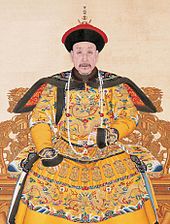
- 1730: Mahmud I takes over Ottoman Empire after civilian unrest.
- 1730-1760: First Great Awakening takes place in Great Britain and North America.
- 1732-1734: Crimean Tatar raids into Russia.[10]
- 1733-1738: War of the Polish Succession.
- 1735-1739: Russo-Turkish War.
- 1735-1799: The Qianlong Emperor of China oversaw a huge expansion in territory.
- 1736: Nader Shah assumed title of Shah of Persia and founded the Afsharid dynasty. Ruled until his death in 1747.
- 1736: Qing Dynasty Chinese court painters recreate Zhang Zeduan's classic panoramic painting, Along the River During Qingming Festival.
- 1738-1756: Famine across the Sahel, half the population of Timbuktu died.[11]
- 1738: Pope Clement XII issues the Eminenti Apostolatus Specula prohibiting Catholics from becoming Freemasons.
- 1739: Nader Shah defeated the Mughals at the Battle of Karnal and sacked Delhi.
- 1739: Great Britain and Spain fight the War of Jenkins' Ear in the Caribbean.
1740s

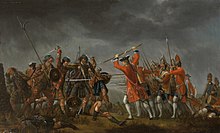
- 1740: Frederick the Great comes to power in Prussia.
- 1740: British attempt to capture St. Augustine, Florida but lose to the Spanish during the Siege of St. Augustine.
- 1740-1741: Famine in Ireland killed ten per cent of the population.
- 1740-1748: War of the Austrian Succession
- 1741: Russians began settling the Aleutian Islands.
- 1741: Pope Benedict XIV issues Immensa Pastorum principis against slavery.
- 1744: The First Saudi State is founded by Mohammed Ibn Saud.[13]
- 1744: French attempt to restart the Jacobite rebellion fails
- 1744-1748: The First Carnatic War fought between the British, the French, the Marathas, and Mysore in India.
- 1745: Second Jacobite Rebellion began by Charles Edward Stuart in Scotland.
- 1747: Ahmed Shah Durrani founded the Durrani Empire in modern day Afghanistan.
- 1748: Treaty of Aix-La-Chapelle ends the War of the Austrian Succession and First Carnatic War.
- 1748-1754: The Second Carnatic War fought between the British, the French, the Marathas, and Mysore in India
1750s
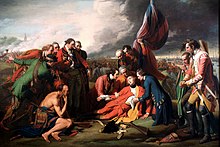
- 1750: Peak of the Little Ice Age
- 1754: Treaty of Pondicherry ends Second Carnatic War and recognizes Muhammed Ali Khan Wallajah as Nawab of the Carnatic.
- 1754–1763, The French and Indian War, Fought in the U.S. and Canada mostly between the French and French allies and the English and English allies. The North American chapter of the Seven Years' War.
- 1755: The Lisbon earthquake
- 1755-1763: The Great Upheaval
- 1756-1763: Seven Years' War fought among European powers in various theaters around the world.
- 1756-1763: The Third Carnatic War fought between the British, the French, the Marathas, and Mysore in India.
- 1757: Battle of Plassey signaled the beginning of formal British rule in India after years of commercial activity under the auspices of the East India Company.
- 1758: British colonel James Wolfe issues the Wolfe's Manifesto
- 1759: French commander Louis-Joseph de Montcalm and British commander James Wolfe die during the Battle of the Plains of Abraham.
1760s

- 1760: George III became King of Britain.
- 1760: Zand dynasty founded in Iran
- 1761: Maratha Empire defeated at Battle of Panipat
- 1762-1796: Reign of Catherine the Great of Russia.
- 1763: Treaty of Paris ends Seven Years' War and Third Carnatic War
- 1763: Kingdom of Mysore conquers the Kingdom of Keladi
- 1765: Stamp Act introduced into the American colonies by the UK Parliament.
- 1766-1799: Anglo-Mysore Wars
- 1767: Burmese conquered the Ayutthaya kingdom.
- 1768: Gurkhas conquered Nepal.
- 1768-1774: Russo-Turkish War
- 1769: Spanish missionaries established the first of 21 missions in California.
- 1769-1770: James Cook explores and maps New Zealand and Australia
- 1769-1773: The Bengal famine of 1770 killed one third of the Bengal population.
1770s

- 1770: James Cook claims the East Coast of Australia (New South Wales) for Great Britain.
- 1770-1771: Famine in Czech lands killed hundreds of thousands.
- 1771: The Plague Riot in Moscow.
- 1771: Richard Arkwright and his partners build the world's first water-powered mill at Cromford.
- 1772: Gustav III of Sweden stages a coup d'état and takes big political power, becoming almost an absolute monarch.
- 1772: Partitions of Poland marks the end of the Polish–Lithuanian Commonwealth
- 1772-1779: Maratha Empire fights England and Raghunathrao's forces during the First Anglo-Maratha War
- 1772-1795: The Partitions of Poland ended the Polish-Lithuanian Commonwealth and erased Poland from the map for 123 years.
- 1773-1775: The Pugachev's Rebellion was the largest peasant revolt in Russia's history.
- 1773: East India Company starts operations in Bengal to smuggle Opium into China.
- 1775 John Harrison H4 and Larcum Kendall K1 Marine chronometers are used to measure longitude by James Cook on his Second voyage (1772-1775)
- 1775-1782: First Anglo-Maratha War
- 1775-1783: American Revolutionary War
- 1776: Illuminati founded by Adam Weishaupt
- 1776: United States Declaration of Independence adopted by the Continental Congress in Philadelphia.
- 1778: James Cook becomes first European on the Hawaiian Islands.
- 1779-1879: Xhosa Wars between British and Boer settlers and the Xhosas in South African Republic
1780s

- 1781: Spanish settlers founded Los Angeles.
- 1781-1785: Serfdom abolished in the Austrian monarchy (first step; second step in 1848)
- 1783: Famine in Iceland caused by the eruption of the Laki volcano.
- 1783: Russian Empire annexed the Crimean Khanate.
- 1783 The Treaty of Paris formally ends the American War of Independence.
- 1785-1791: Imam Sheikh Mansur, a Chechen warrior and Muslim mystic, led a coalition of Muslim Caucasian tribes from throughout the Caucasus in a holy war against the Russian invaders.[14]
- 1785-1795: Northwest Indian War between the United States and Native Americans
- 1787: United States Constitution was written in Philadelphia and submitted to the states for ratification.
- 1787: Freed slaves from London founded Freetown in present-day Sierra Leone.
- 1787: Kansei Reforms instituted in Japan by Matsudaira Sadanobu.
- 1787-1792: Russo-Turkish War
- 1788: First European settlement established in Australia at Sydney.
- 1788: New Hampshire ratifies the United States Constitution as the 9th state, and by the terms of Article VII it is in effect.
- 1789: George Washington elected President of the United States. Served until 1797.
- 1789: Great Britain and Spain dispute the Nootka Sound during the Nootka Crisis.
- 1789-1799: The French Revolution

1790s

- 1790: Establishment of the Polish-Prussian Pact
- 1791 The Constitutional Act (Or Canada Act) creates the two provinces of Upper and Lower Canada in British North America.
- 1791-1795: George Vancouver explores the world during the Vancouver Expedition.
- 1791-1804: The Haitian Revolution
- 1792-1815: The Great French War started as the French Revolutionary Wars which lead into the Napoleonic Wars.
- 1792: New York Stock & Exchange Board founded.
- 1792: King Gustav III of Sweden was assassinated by a conspiracy of noblemen.
- 1793: Upper Canada bans slavery.
- 1793: The largest yellow fever epidemic in American history killed as many as 5,000 people in Philadelphia—roughly 10% of the population.[15]
- 1793-1796: Revolt in the Vendée against the French Republic at the time of the Revolution.
- 1794: Polish revolt
- 1794: Jay's Treaty concluded between Great Britain and the United States, by which the Western Posts in the Great Lakes are returned to the U.S., and commerce between the two countries is regulated.
- 1794: Qajar dynasty founded in Iran after replacing the Zand dynasty.
- 1795: Pinckney's Treaty between the United States and Spain granted the Mississippi Territory to the US.
- 1795: The Marseillaise officially adopted as the French national anthem.
- 1795: Kamehameha I of the Island of Hawaii defeats the Oahuans at the Battle of Nu'uanu.
- 1796: Edward Jenner administers the first smallpox vaccination. Smallpox killed an estimated 400,000 Europeans each year during the 18th century (including five reigning monarchs).[16]
- 1796: Battle of Montenotte. Engagement in the War of the First Coalition. Napoleon Bonaparte's first victory as an army commander.
- 1796: British ejected Dutch from Ceylon.
- 1796: Mungo Park, backed by the African Association, is the first European to set eyes on the Niger River in Africa.
- 1796-1804: The White Lotus Rebellion against the Manchu Dynasty in China.
- 1797: Napoleon's invasion and partition of the Republic of Venice ended over 1,000 years of independence for the Serene Republic.
- 1798: The Irish Rebellion failed to overthrow British rule in Ireland.
- 1798-1800: Quasi-War between the United States and France.
- 1799: Napoleon staged a coup d'état and became dictator of France.
- 1799: Dutch East India Company is dissolved.
- 1799: The assassination of the 14th Tu'i Kanokupolu, Tukuʻaho, plunges Tonga into half a century of civil war.
Significant people
World leaders, politicians, military

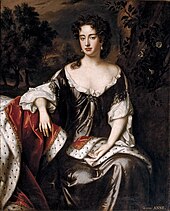






- John Adams, American statesman
- Samuel Adams, American statesman
- Ahmad Shah Abdali, Afghan King
- Ahmed III, Sultan of the Ottoman Empire
- Hyder Ali, Ruler of Mysore
- Ethan Allen, American Revolutionary Army
- Anne, Queen of Great Britain
- Marie Antoinette, Austrian-born Queen of France
- Augustus III, Elector of Saxony, King of Poland, and Grand Duke of Lithuania
- Aurangzeb, Mughal Emperor
- Boromakot, King of Ayutthaya
- Boromaracha V, King of Ayutthaya
- William Cavendish, Anglo-Irish politician
- John Carteret, Anglo-Irish politician
- Catherine the Great, Tsaritsa of Russia
- Charles III, King of Spain, Naples, and Sicily
- Charles VI, Emperor of the Holy Roman Empire, King of Bohemia and Hungary
- Charles XII, King of Sweden, the Goths and the Wends;
- Charlotte Corday, French revolutionary
- Georges Danton, French revolutionary leader
- Farrukhsiyar, Emperor of Mughal
- Ferdinand I, King of Naples, Sicily, and the Two Sicilies
- Benjamin Franklin, American leader, scientist and statesman
- Juan Franscisco, Spanish naval officer and explorer
- Adolf Frederick, King of Sweden, the Goths and the Wends
- Frederick the Great, King of Prussia
- George I, King of Great Britain and Ireland
- George II, King of Great Britain and Ireland
- George III, King of Great Britain and Ireland
- Robert Gray, American revolutionary, merchant, and explorer
- Gustav III, King of Sweden, the Goths and the Wends
- Gyeongjong, King of Joseon Dynasty
- Abdul Hamid I, Sultan of Ottoman Empire
- Alexander Hamilton, American statesman
- Patrick Henry, American statesman
- Emperor Higashiyama, Emperor of Japan
- John Jay, American statesman
- Thomas Jefferson, American statesman
- Jeongjo, King of Joseon Dynasty
- John Paul Jones, American naval commander
- Joseph I, King of Portugal
- Joseph II, Austrian Emperor
- Kangxi Emperor, Chinese Emperor
- Karim Khan, Shah of Iran and King of Persia
- Marquis de Lafayette, Continental Army officer
- Louis XIV, King of France
- Louis XV, King of France
- Louis XVI, King of France
- Louis XVII, imprisoned King of France, never ruled
- James Madison, American statesman
- Madhavrao I, Peshwa/Prime Minister of Maratha Empire
- Madhavrao I Scindia, Marathan leader
- Mahmud I, Sultan of Ottoman Empire
- Alessandro Malaspina, Spanish explorer
- George Mason, American statesman
- Michikinikwa, Miami chief and warrior
- José Moñino y Redondo, Spanish statesman
- Louis-Joseph de Montcalm, French officer
- Mustafa III, Sultan of Ottoman Empire
- Nadir Shah, King of Persia
- Nakamikado, Emperor of Japan
- Horatio Nelson, British admiral
- Nanasaheb, Peshwa/Prime Minister of Maratha Empire
- Shivappa Nayaka, King of Keladi Nayaka
- Osman III, Sultan of Ottaman Empire
- Peter I (Peter the Great), Tsar of Russian
- Philip V, King of Spain
- Pontiac, Ottawa chief and warrior
- Qianlong, Emperor of China
- Rajaram II of Satara, Monarch of the Maratha Confederacy
- Francis II Rákóczi, Prince of Hungary and Transylvania, revolutionary leader
- Tadeusz Rejtan, Polish politician
- Paul Revere, American revolutionary leader and silversmith
- Maximilien Robespierre, French revolutionary leader
- Betsy Ross, American flag maker
- Shah Rukh of Persia, King of Persia.
- John Russell, Anglo-Irish politician
- Lionel Sackville, Anglo-Irish politician
- Sebastião de Melo, Prime Minister of Portugal
- Chattrapati Shahu, Emperor of Maratha Empire
- Selim III, Sultan of Ottoman Empire
- Charles Edward Stuart, English Jacobite exile
- Sukjong, King of Joseon Dynasty
- Alexander Suvorov, Russian military leader
- Maria Theresa, Austrian Empress
- Tokugawa Ieharu, Japanese Shogun
- Tokugawa Ienobu, Japanese Shogun
- Tokugawa Ieshige, Japanese Shogun
- Tokugawa Ietsugu, Japanese Shogun
- Tokugawa Tsunayoshi, Japanese Shogun
- Tokugawa Yoshimune, Japanese Shogun
- Toussaint L'Ouverture, Haitian revolutionary leader
- Túpac Amaru II, Peruvian revolutionary
- George Vancouver, British Captain and explorer
- Robert Walpole, Prime Minister of Great Britain
- George Washington, American general and first President of the United States
- James Wolfe, British officer
- Yeongjo, King of Joseon Dynasty
Show business, theatre, entertainers

- Barton Booth, actor
- Colley Cibber, actor, poet, playwright
- Thomas Doggett, actor
- David Garrick, actor
- John Gay, English dramatist and poet
- Charles Johnson, English playwright
- Charles Macklin, actor
- Chikamatsu Monzaemon, Japanese dramatist, playwright
- John O'Keeffee, Irish playwright
- Anne Oldfield, English actress
- Hannah Pritchard, English actress
- Hester Santlow, English actress, ballerina, dancer
- Kong Shangren, Chinese dramatist, poet
- Richard Brinsley Sheridan, Irish playwright
- John Small, English cricketer
- Edward "Lumpy" Stevens, English cricketer
- Robert Wilks, English actor
- Wang Yun, Chinese playwright, poet
Musicians, composers


- Tomaso Albinoni, Italian composer
- Samuel Arnold, English composer and musician
- Nidhu Babu, Indian and Bengali musician and composer
- Johann Sebastian Bach, German composer
- Charles Burney, English musician and music historian
- François Couperin, French composer
- William Cowper, English hymnist and poet
- Dede Efendi, Turkish/Ottoman composer
- Christoph Willibald Gluck, German composer
- Francesco Geminiani, Italian violinist, composer, and music theorist.
- George Frideric Handel, German-English composer
- Joseph Haydn, Austrian composer
- Hampartsoum Limondjian, Armenian/Ottoman composer
- Kali Mirza, Bengali composer
- Leopold Mozart, Austrian composer
- Wolfgang Amadeus Mozart, Austrian composer
- Johann Pachelbel, German composer, teacher
- François-André Danican Philidor, French composer and chess master
- Jean-Philippe Rameau, French composer
- Bharatchandra Ray, Bengali composer, musician, and poet
- Sadarang, Hindustani composer
- Domenico Scarlatti, Italian composer.
- Antonio Stradivari, Italian violin maker
- Antonio Vivaldi, Italian composer
- Isaac Watts, English hymnist
Visual artists, painters, sculptors, printmakers

- Michel Benoist, French painter, architect, missionary in China
- William Blake, English artist and poet
- Edmé Bouchardon, French sculptor
- François Boucher, French painter
- Giuseppe Castiglione, Italian painter, architect, missionary in China
- Jean-Baptiste-Siméon Chardin, French painter
- John Singleton Copley, American painter
- Jacques-Louis David, French painter
- Étienne Maurice Falconet, French sculptor
- Jean-Honoré Fragonard, French painter
- Thomas Gainsborough, English painter
- Francisco de Goya, Spanish painter
- Jean-Baptiste Greuze, French painter
- Suzuki Harunobu, Japanese woodblock printer
- William Hogarth, English painter and engraver
- Jean-Baptiste Lemoyne, French sculptor, student of his father
- Jean-Louis Lemoyne, French sculptor
- Robert Le Lorrain, French sculptor
- Yuan Mei, Chinese painter, poet, essayist
- Antoine Ignace Melling, French-German painter, architect
- Gai Qi, Chinese painter, poet
- Bartolomeo Rastrelli, Italian-born Russian architect
- Joshua Reynolds, English painter
- Gilbert Stuart, American painter
- Nishikawa Sukenobu, Japanese printmaker, teacher
- Giovanni Battista Tiepolo, Venetian painter
- Jiang Tingxi, Chinese artist and scholar
- Kitagawa Utamaro, Japanese printmaker and painter
- Antoine Watteau, French painter
Writers, poets

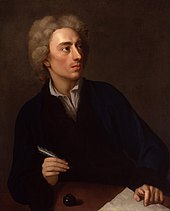

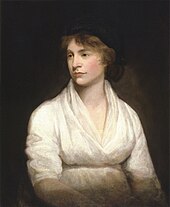
- Jane Austen, English writer
- Anna Laetitia Barbauld, English Poet, essayist, and children's author
- Pierre Beaumarchais, French writer
- Nicolas Boileau-Despréaux, French poet and literary critic
- James Boswell, Scottish biographer
- Frances Burney, English novelist
- Robert Burns, Scottish poet
- Giacomo Casanova, Venetian adventurer, writer and womanizer
- Pierre Choderlos de Laclos, French writer
- Daniel Defoe, English novelist and journalist
- Liang Desheng, Chinese poet and writer
- Maria Edgeworth, Anglo-Irish novelist
- Henry Fielding, English novelist
- Johann Wolfgang von Goethe, German writer
- Oliver Goldsmith, Anglo-Irish writer, poet, children's writer, and playwright
- Thomas Gray, English poet, scholar, and educator
- Eliza Haywood, English writer
- Wu Jingzi, Chinese writer
- Samuel Johnson, British writer, lexicographer, poet, and literary critic
- John Keats, British poet/writer
- Ferenc Kazinczy, Hungarian writer
- Charlotte Lennox, English novelist and poet
- Matthew Lewis, English novelist and playwright
- Sadhak Kamalakanta, Indian poet
- Henry Mackenzie, Scottish novelist
- Jean-Paul Marat, French journalist
- Gaspar Melchor de Jovellanos, Spanish writer
- Yuan Mei, Chinese poet, scholar and artist
- Honoré Mirabeau, French writer and politician
- John Newbery, English children's literature publisher
- Alexander Pope, English poet
- Ann Radcliffe, English novelist
- Samuel Richardson, English novelist
- Li Ruzhen, Chinese novelist
- Marquis de Sade, French writer and philosopher
- Ramprasad Sen, Bengali poet and singer
- Friedrich Schiller, German writer
- Walter Scott, Scottish novelest and poet
- Christopher Smart, English poet and actor
- Robert Southey, English poet and biographer
- Hester Thrale, English memoirist
- Charlotte Turner Smith, English writer
- Pu Songling, Chinese short story writer
- Laurence Sterne, Anglo-Irish writer
- Jonathan Swift, Anglo-Irish satirist and Church of Ireland Dean
- Ueda Akinari, Japanese writer
- Voltaire, French writer and philosopher
- Horace Walpole, English writer and politician
- Mary Wollstonecraft, British writer and feminist
- Cao Xueqin, Chinese writer
Philosophers, theologians


- Arai Hakuseki, Japanese scholar, writer and politician
- Jeremy Bentham, English philosopher and reformer
- George Berkeley, Irish empiricist philosopher
- Edmund Burke, British statesman and philosopher
- Frederick Cornwallis, Archbishop of Canterbury
- Erasmus Darwin, English philosopher, poet and scientist
- Denis Diderot, French writer and philosopher
- William Godwin, English philosopher and novelist
- Aaron Halle-Wolfssohn, German writer, Jewish theologian, translator, and professor
- Johann Gottfried Herder, German philosopher, writer, and critic
- Thomas Herring, Archbishop of Canterbury
- David Hume, Scottish philosopher
- Matthew Hutton, Archbishop of Canterbury
- Immanuel Kant, German philosopher
- Kamo no Mabuchi, Japanese philosopher
- William Law, English theologian
- Alphonsus Liguori, Italian bishop, founder of Redemptorists, Saint
- Moses Mendelssohn, German philosopher
- Charles de Secondat (Montesquieu), French thinker
- John Moore, Archbishop of Canterbury
- Motoori Norinaga, Japanese philosopher and scholar
- Thomas Paine, English philosopher
- Elihu Palmer, American deist
- Thomas Percy, English bishop and editor
- Joseph Perl, German writer, Jewish theologian, and educator
- John Potter, Archbishop of Canterbury
- Jean-Jacques Rousseau, French writer and philosopher
- Thomas Secker, Archbishop of Canterbury
- Sugita Genpaku, Japanese scholar and translator
- Emanuel Swedenborg, Swedish scientist, thinker and mystic
- Thomas Tenison, Archbishop of Canterbury
- Christian Thomasius, German philosopher and jurist
- Baal Shem Tov, Ukrainian rabbi
- Muhammad ibn Abd al Wahhab, Arab Islamic theologian and founder of Wahhabism
- William Wake, Archbishop of Canterbury
- John Wesley, English theologian, founder of Methodism
- Nikolaus Ludwig von Zinzendorf, German religious writer and bishop
Scientists, researchers
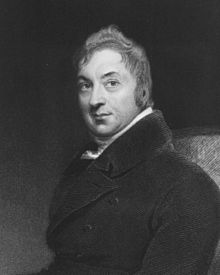

- Roger Joseph Boscovich, physicist, astronomer, mathematician, philosopher, diplomat, poet, and Jesuit
- Maria Gaetana Agnesi, Italian mathematician[17]
- Jean le Rond d'Alembert, French mathematician, physicist and encyclopedist
- Joseph Banks, English botanist
- Laura Bassi, Italian scientist, the first European female college teacher[17]
- Daniel Bernoulli, Swiss mathematician and physicist
- Anders Celsius, Swedish astronomer
- Alexis Clairault, French mathematician
- James Cook, English navigator, explorer and cartographer
- Eugenio Espejo, Ecuadorian scientist
- Leonhard Euler, Swiss mathematician
- Daniel Gabriel Fahrenheit, German physicist and engineer
- George Fordyce, Scottish physician and chemist
- Carl Friedrich Gauss, German mathematician, physicist and astronomer
- Edward Gibbon, English historian
- Edward Jenner, English inventor of vaccination
- William Jones, English philologist
- Joseph Louis Lagrange, Italian-French mathematician and physicist
- Pierre Simon Laplace, French physicist and mathematician
- Antoine Lavoisier, French chemist
- John Law, Scottish economist
- Pan Lei, Chinese scholar and mathematician
- Adrien-Marie Legendre, French mathematician
- Carolus Linnaeus (Carl von Linné), Swedish biologist
- Mikhail Lomonosov, Russian scientist
- Edmond Malone, Irish literary scholar
- Thomas Malthus, English economist
- Joseph Priestley, dissenting minister and chemist
- John Smeaton, civil engineer and physicist
- Adam Smith, Scottish economist and philosopher
- Antonio de Ulloa, Spanish scientist and explorer
- James Watt, Scottish scientist and inventor
- John Whitehurst, English geologist
- Dai Zhen, Chinese mathematician, geographer, phonologist and philosopher
Inventions, discoveries, introductions


- 1709: The first piano was built by Bartolomeo Cristofori
- 1711: The Tuning fork invented by John Shore
- 1712: The Steam Engine invented by Thomas Newcomen
- 1714: The Mercury thermometer by Daniel Gabriel Fahrenheit
- 1717: The diving bell was successfully tested by Edmond Halley, sustainable to a depth of 55 ft
- c. 1730: The octant navigational tool was developed by John Hadley in England, and Thomas Godfrey in America
- 1733: Flying shuttle invented by John Kay
- 1736: Europeans discovered rubber – the discovery was made by Charles-Marie de la Condamine while on expedition in South America. It was named in 1770 by Joseph Priestly
- c. 1740: Modern steel was developed by Benjamin Huntsman
- 1741: Vitus Bering discovered Alaska
- 1745: The Leyden jar invented by Ewald von Kleist was the first electrical capacitor
- 1752: The Lightning rod invented by Benjamin Franklin
- 1755: The tallest wooden Bodhisattva statue in the world is erected at Puning Temple, Chengde, China.
- 1764: The Spinning Jenny created by James Hargreaves brought on the Industrial Revolution
- 1765: James Watt enhances Newcomen's steam engine, allowing new steel technologies
- 1761: The problem of Longitude was finally resolved by the fourth chronometer of John Harrison
- 1768–1779: James Cook mapped the boundaries of the Pacific Ocean and discovered many Pacific Islands
- 1771: The enormous Putuo Zongcheng Temple complex of Chengde, China is completed
- 1773–1782: The Qing Dynasty huge literary compilation Siku Quanshu
- 1774: Joseph Priestley discovers "dephlogisticated air" Oxygen
- 1775: Joseph Priestley first synthesis of "phlogisticated nitrous air" Nitrous Oxide "laughing gas"
- 1776: The Steamboat invented by Claude de Jouffroy
- 1777: The Circular saw invented by Samuel Miller
- 1779: Photosynthesis was first discovered by Jan Ingenhousz
- 1784: The Bifocals invented by Benjamin Franklin
- 1784: The Oil lamp invented by Aimé Argand[18]
- 1785: The Power loom invented by Edmund Cartwright
- 1785: The Automatic flour mill invented by Oliver Evans
- 1786: The Threshing machine invented by Andrew Meikle
- 1789: Antoine Lavoisier discovers the law of conservation of mass, the basis for chemistry, and begins modern chemistry
- 1798: Edward Jenner publishes a treatise about smallpox vaccination
- 1798: The Lithographic printing process invented by Alois Senefelder[19]
- 1799: Rosetta stone discovered by Napoleon's troops
Literary achievements

- 1744: A Little Pretty Pocket-Book becomes one of the first books marketed for children
- 1748: Clarissa by Samuel Richardson
- 1749: The History of Tom Jones, a Foundling by Henry Fielding
- 1751–1785: The French Encyclopédie
- 1755: A Dictionary of the English Language by Samuel Johnson
- 1759: The Theory of Moral Sentiments by Adam Smith
- 1762: Emile: or, On Education by Jean-Jacques Rousseau
- 1762: The Social Contract, Or Principles of Political Right by Jean-Jacques Rousseau
- 1776: The Wealth of Nations, foundation of the modern theory of economy, was published by Adam Smith
- 1776-1789: The History of the Decline and Fall of the Roman Empire was published by Edward Gibbon
- 1779: Amazing Grace published by John Newton
- 1779-1782: Lives of the Most Eminent English Poets by Samuel Johnson
- 1787-1788: Federalist Papers by Alexander Hamilton, John Jay, and James Madison
- 1791: Rights of Man by Thomas Paine
- 1798: An Essay on the Principle of Population published by Thomas Malthus
References
- ^ Anderson, M. S. (1979). Historians and the Eighteenth-Century Europe, 1715–1789. Oxford University Press. ISBN 0198225482. OCLC 185538307.
- ^ Ribeiro, Aileen (2002). Dress in Eighteenth-Century Europe 1715-1789 (revised edition). Yale University Press. ISBN 0300091516. OCLC 186413657.
- ^ Baines, Paul (2004). The Long 18th Century. London: Arnold. ISBN 0340813725.
- ^ Marshall, P. J. (Editor) (2001). The Oxford History of the British Empire: Volume II: The Eighteenth Century (Oxford History of the British Empire). Oxford University Press, USA. ISBN 0199246777. OCLC 174866045.
{{cite book}}:|author=has generic name (help), "Introduction" by P. J. Marshall, page 1 - ^ O'Gorman, Frank (1997). The Long Eighteenth Century: British Political and Social History 1688-1832 (The Arnold History of Britain Series). A Hodder Arnold Publication. ISBN 0340567511. OCLC 243883533.
- ^ "War of the Spanish Succession, 1701-1714". Historyofwar.org. Retrieved 2009-04-25.
- ^ Historic uk – heritage of britain accommodation guide (2007-05-03). "The history of Scotland – The Act of Union 1707". Historic-uk.com. Retrieved 2009-04-25.
- ^ "Welcome to Encyclopædia Britannica's Guide to History". Britannica.com. 1910-01-31. Retrieved 2009-04-25.
- ^ "Usman dan Fodio (Fulani leader)". Britannica.com. Retrieved 2009-04-25.
- ^ "List of Wars of the Crimean Tatars". Zum.de. Retrieved 2009-04-25.
- ^ "Len Milich: Anthropogenic Desertification vs 'Natural' Climate Trends". Ag.arizona.edu. 1997-08-10. Retrieved 2009-04-25.
- ^ "A guide to Scottish clans". Unique-cottages.co.uk. Retrieved 2009-04-25.
- ^ "Saudi Arabia – The Saud Family and Wahhabi Islam". Countrystudies.us. Retrieved 2009-04-25.
- ^ "Sufism in the Caucasus". Islamicsupremecouncil.org. Retrieved 2009-04-25.
- ^ "Yellow Fever Attacks Philadelphia, 1793". EyeWitness to History. Retrieved 2007-06-22.
- ^ Riedel S (2005). "Edward Jenner and the history of smallpox and vaccination". Proc (Bayl Univ Med Cent). 18 (1): 21–5. PMID 16200144.
- ^ a b Porter, Roy (Editor) (2003). The Cambridge History of Science, Volume 4: The Eighteenth Century (The Cambridge History of Science). Cambridge University Press. ISBN 0521572436. OCLC 123123201.
{{cite book}}:|author=has generic name (help), "The Philosopher's Beard: Women and Gender in Science" by Londra Schiebinger, pages 184-210 - ^ Encyclopædia Britannica's Great Inventions, Encyclopædia Britannica
- ^ Meggs, Philip B. A History of Graphic Design. (1998) John Wiley & Sons, Inc. p 146 ISBN 0-471-291-98-6